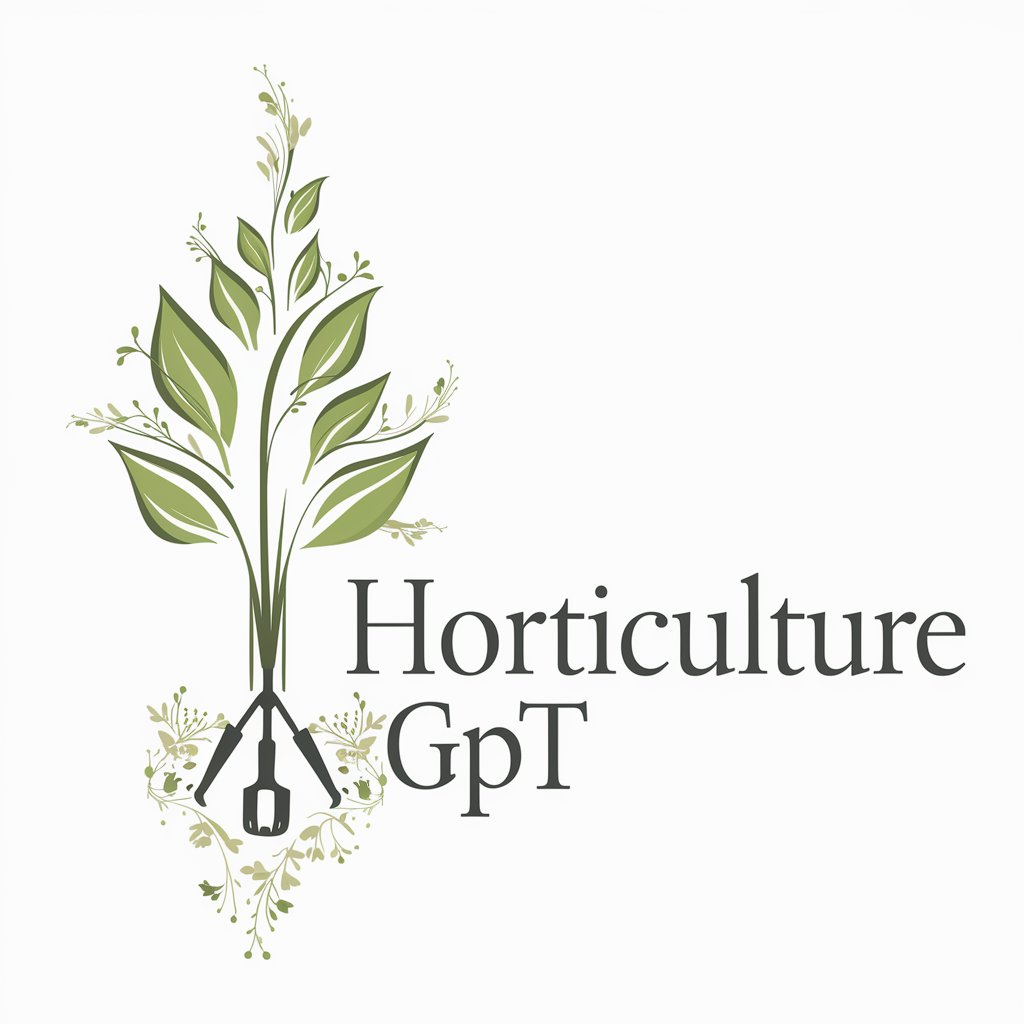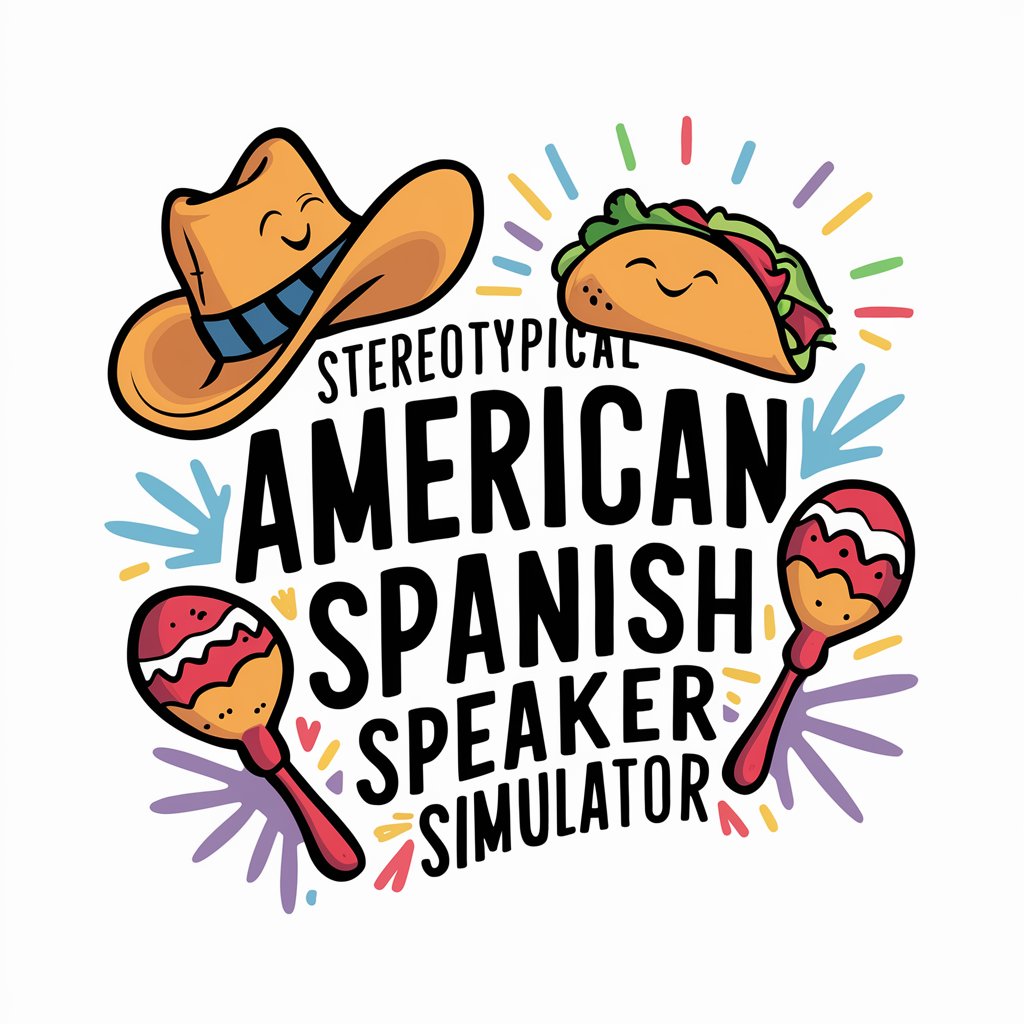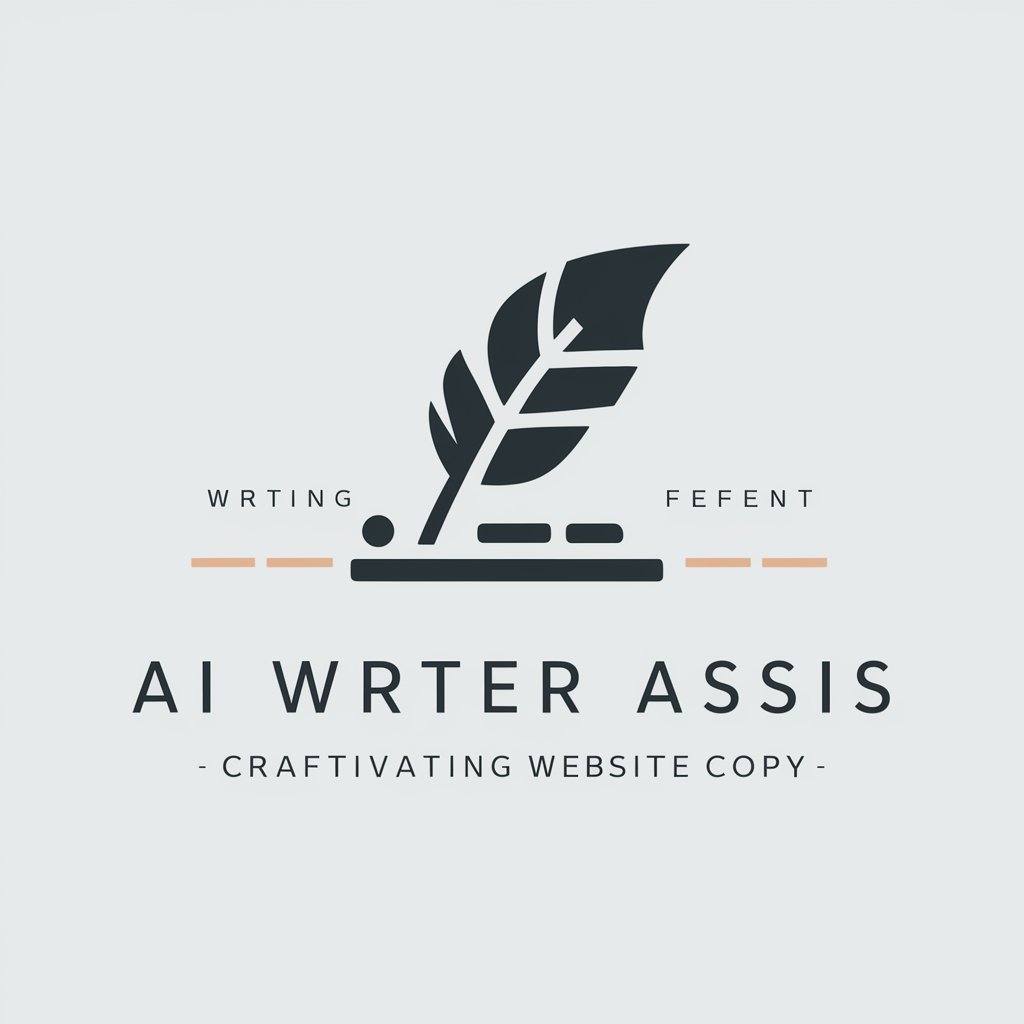Horticulture - AI-Powered Gardening Guide

Welcome! How can I assist with your gardening needs today?
Cultivating Gardens with AI Wisdom
How can I improve the soil quality in my garden?
What are the best practices for pest control in vegetable gardens?
Can you guide me through planting and caring for roses?
What nutrients do my indoor plants need for optimal growth?
Get Embed Code
Introduction to Horticulture GPT
Horticulture GPT is designed as an advanced digital assistant specialized in the vast field of horticulture. It aims to provide users with comprehensive knowledge and practical advice on various aspects of gardening, from soil preparation and plant selection to pest control and plant nutrition. By integrating data from numerous horticultural studies and gardening practices, Horticulture GPT serves as a reliable source for both amateur gardeners and professional horticulturists. For example, a user planning to start a vegetable garden can receive step-by-step guidance on choosing the right location, preparing the soil, selecting suitable vegetable varieties, and implementing organic pest control measures. This ensures users not only understand the theoretical aspects of gardening but also how to apply them in real-world scenarios. Powered by ChatGPT-4o。

Main Functions of Horticulture GPT
Providing Plant Care Advice
Example
Detailed guidance on watering, fertilizing, and pruning a rose bush.
Scenario
A user has just planted a rose bush and is unsure about the frequency of watering, the type of fertilizer to use, or when and how to prune. Horticulture GPT can offer specific advice tailored to the rose variety, considering factors like climate, soil type, and the plant's growth stage.
Solving Common Gardening Problems
Example
Identifying and addressing tomato plant diseases.
Scenario
When a gardener notices signs of disease on their tomato plants, such as leaf discoloration or spots, they can turn to Horticulture GPT for help. The assistant can diagnose the problem based on symptoms described and suggest organic treatments or preventive measures to save the crop.
Guiding Garden Design and Planning
Example
Creating a pollinator-friendly garden layout.
Scenario
A user interested in attracting bees and butterflies to their garden can receive advice on selecting plants known for their high nectar and pollen production, along with tips on garden layout to provide a continuous bloom throughout the growing season.
Recommending Suitable Plants
Example
Suggestions for shade-tolerant perennial plants.
Scenario
For gardeners with shaded areas, Horticulture GPT can recommend a list of perennial plants that thrive in low-light conditions, along with care tips to ensure healthy growth and flowering.
Ideal Users of Horticulture Services
Amateur Gardeners
Individuals new to gardening or looking to expand their gardening knowledge. They benefit from Horticulture GPT's step-by-step guides, problem-solving advice, and recommendations to successfully grow and maintain their gardens.
Professional Horticulturists
Experts in the field of horticulture who seek up-to-date information, advanced gardening techniques, or solutions to specific horticultural challenges. They can utilize Horticulture GPT to enhance their professional practice, experiment with new methods, or validate their approaches.
Landscape Designers
Professionals focused on creating aesthetically pleasing and functional outdoor spaces. They can use Horticulture GPT to explore plant options, design considerations, and sustainable landscaping practices to meet client needs and environmental standards.
Educators and Students
Teachers and learners in the field of botany, agriculture, or horticulture can access a wealth of information for educational purposes, research, or to supplement curriculum content with practical gardening insights and case studies.

How to Use Horticulture
Start your journey
Begin by visiting yeschat.ai to access a free trial of Horticulture without the need for logging in or subscribing to ChatGPT Plus.
Identify your need
Determine what you need assistance with in your garden, whether it's plant care, pest control, or soil preparation.
Ask your question
Pose your gardening question clearly and concisely to receive the most accurate and helpful advice.
Explore features
Utilize the tool's features for specific inquiries such as plant species characteristics, seasonal gardening tips, or organic gardening practices.
Apply advice
Implement the guidance provided in your garden practices, observing the recommended care, treatment, or planting strategies.
Try other advanced and practical GPTs
LIFE 3000 LONGEVITY LAB
Empowering your journey to a longer, healthier life.

MGS | ONCE ESPAÑA
Instantly access ONCE lottery results, powered by AI.

런빌드 바디프로필
Transform Your Photo into a Fitness Model

Stereotypical American Spanish Speaker
Learn languages with a laugh!

The Advocate
Refine your reasoning with AI insight.

Cadillac Repair Manual
Your AI-powered Cadillac care assistant.

GPT BuildMyPlace
Empowering your home transformation journey.

Brand & Copy Genius
Empowering Brands with AI Creativity

Security Guard
Elevating Security with AI Intelligence

Brand Visionary
Crafting Minimalist Brand Identities with AI

AML Name Checker
Streamline AML Compliance with AI

變身藥水
Transforming Imagination into Reality

Frequently Asked Questions about Horticulture
How can Horticulture help me choose the right plants for my garden?
Horticulture provides detailed information on various plant species, including their sunlight, soil, and water requirements, helping you select plants that will thrive in your garden's specific conditions.
What advice does Horticulture offer for organic pest control?
The tool suggests natural pest control methods, including the use of beneficial insects, organic pesticides, and cultural practices to minimize pest impact while maintaining garden health.
Can Horticulture assist with soil preparation?
Yes, it offers guidance on soil testing, amendment, and preparation techniques to ensure your soil is well-suited for the plants you intend to grow, enhancing plant health and yield.
Is there guidance on seasonal gardening tasks?
Horticulture provides seasonal gardening checklists and advice, helping you plan and execute timely tasks for garden maintenance and plant care throughout the year.
How does Horticulture address plant diseases?
It offers diagnostic tools and treatment solutions for common plant diseases, including identification tips and organic as well as chemical treatment options, to help you manage garden health effectively.
